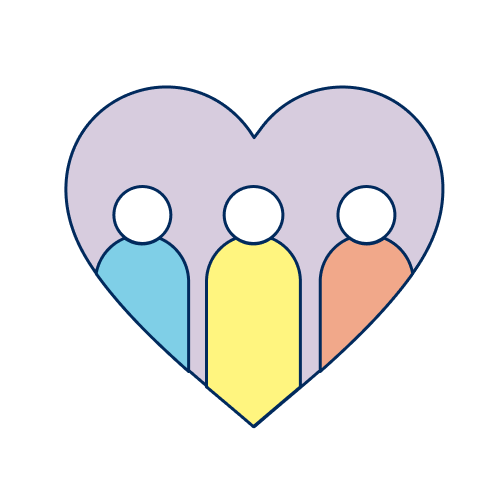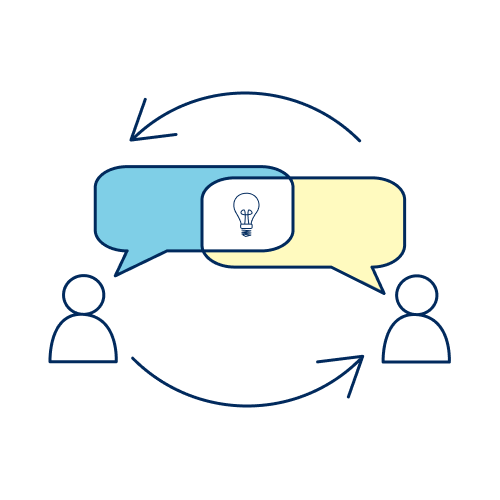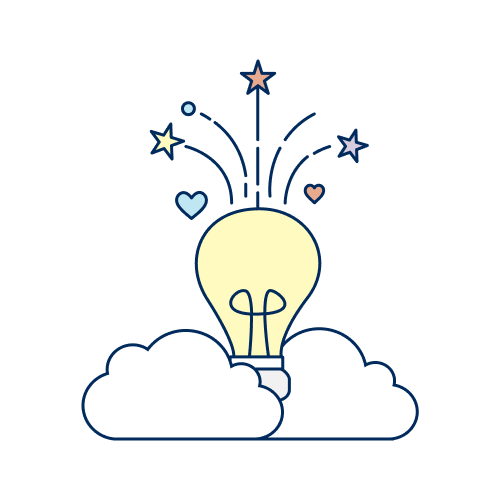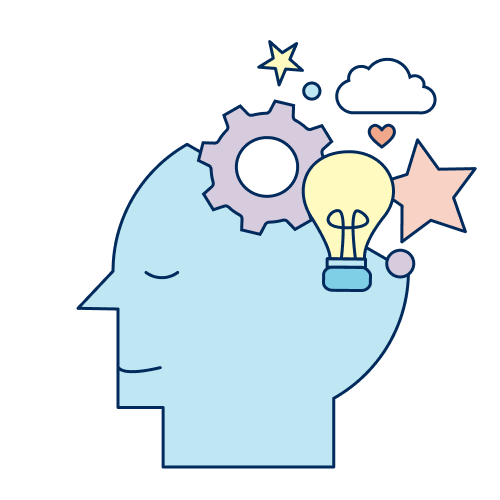This year, the Innovation Hub partnered with Health & Wellness to focus on how students take care of their mental health. The Design Research Team discovered the importance of working together to conduct inspiring work that was grounded in the experiences that students shared.




Written by Lisa Yuwen Hu, Honours Bachelor of Science, Psychology Research Specialist (Design Research Team Lead); Kendra Dizon, Master of Information, User Experience Design; Jenna Gu, Bachelor of Science, Computer Science and Sociology; Helen Chan, Master of Information, User Experience Design (Design Researchers)
Mental health is a complex and diverse topic. As part of a continued collaboration with Health and Wellness, we focused on learning about how students take care of their mental health. We explored students’ needs and perspectives around how they support their own mental health to help inform the future development of Health and Wellness services and programming.
The Joys of Interviewing

A common theme that our team enjoyed about the work was the opportunity to interview and interact with students. As individuals who are passionate about student mental health, we found facilitating interviews a challenging skill to learn, but an exciting experience to see the bravery of students in sharing their stories with us during feedback sessions and co-creation sessions.
“I had the opportunity to receive training in facilitating interviews for the first time. This experience was truly eye-opening, as it made me realize the steep learning curve involved in the interview process.” – Jenna Gu
“I enjoyed the co-creation sessions with our research participants the most. Facilitating collaborative ideation sessions with students to generate ideas about mental health was rewarding because I got to hear how they envision the future of Health and Wellness.” – Kendra Dizon
Although learning how to conduct meaningful interviews was a difficult process, we enjoyed the opportunities we had to learn about what mental health meant to students and were committed to do work that was grounded in their perspectives. Students shared a diverse range of experiences, and we were excited to begin diving into the data and begin crafting insights from what was shared during our sessions.
Keeping Biases in Check with Open Dialogue

We encountered the challenge of accurately communicating the data we collected. Our passion for student mental health created a pressure to do right by student stories, and we struggled to ensure that our analysis of the data was not impacted by our personal biases.
“Having an active ear during all conversations opened up dialogue between team members, in addition to the participants we spoke to during sessions. Listening throughout the process helped open doors to new insights while keeping our biases in check, which helped us do the best work we could do, together.” – Lisa Yuwen Hu
Having open dialogue conversations allowed our team to have a critical lens when examining our work for bias and articulate our findings in a way that was true to student stories.
Inspiring Through Insights

From the beginning, we strived to conduct research that was both inspirational and insightful. We laid the groundwork for our insights by conducting fruitful interviews and analyzing data critically. However, we struggled with articulating our findings inspirationally in presentations and reports, particularly when students shared stories of adversity.
“Writing insightful and inspirational content that evokes the Health and Wellness stakeholders to drive change was a major takeaway for me from this project. Reminding ourselves of the impact the project makes helps keeps us focused on the overall purpose of designing with students—co-designing is important because understanding students’ journeys is the key to powerful change.” – Helen Chan
Through our design thinking workshops and iterative process, we learned how to story tell our data in a way that was future-focused to inspire our partners’ excitement for the future. We crafted our content in a way that rang true to the stories that we heard but maintained a focus on the aspirational future that we can work together to achieve.
Learning with Design Thinking

Throughout the design thinking process, we were able to conduct difficult yet meaningful interviews with students, have open dialogue with each other during data analysis, and share the fruits of our efforts to inspire our partners with the insights that came out of the data. We invite individuals to reflect on the challenges that they face in everyday life and consider how working with others to conduct inspiring work could have impacted the outcome of those experiences.
0 comments on “Project Insights: Supporting Our Mental Health”